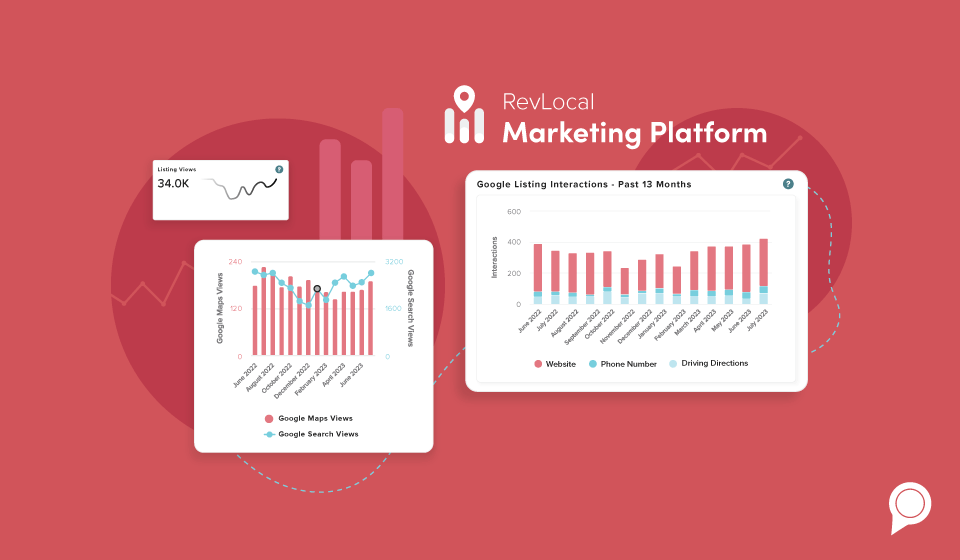

Our new client Marketing Platform creates a streamlined connection between you and your business’s digital marketing success. The main purpose of the Marketing Platform is to understand how your business’s digital marketing efforts translate into positive movement through the marketing funnel.
In this blog, we’re covering the different stages of the marketing funnel and explaining how the data we collect in the Marketing Platform correlates to customers’ progression down the funnel.
To learn more about everything the Marketing Platform has to offer, view our How-To page.
The marketing funnel is a universal marketing concept that advertisers use to identify where their customers fall within the buyer’s journey. It also acts as a guide for advertising campaign decisions and overall marketing goals for unique customer segments and audiences.
There are four main stages to the marketing funnel: awareness, consideration, decision and share.
The marketing funnel, also known as the sales funnel, has various phase descriptions, including exposure, research, action and delight.
Whichever names you choose for the four stages, they all reference the same “state of being” for the customer. Understanding each of these stages can help you understand what your customer needs from your business in order to enter the next stage of the funnel.
Without an in-depth knowledge of the marketing funnel, marketing campaigns can be ineffective and fall flat. Mastering the marketing funnel and knowing how your customers feel and behave at each stage, is paramount for your business’s digital marketing success.
Customers in the awareness stage of the marketing funnel have been exposed to your business and brand. The exposure may have come through an ad, a social media post or a word-of-mouth referral from a friend.
Potential buyers in the awareness stage have a low attachment to your business and may or may not have plans to interact further with your brand.
While this stage is relatively non-committal at first, it’s important to keep the top of your marketing funnel full. These stage-one consumers can only become customers if they are aware of your business.
Brand awareness (or brand expander) campaigns are designed to introduce your business to a wide audience and fill the awareness stage of the marketing funnel.
Ideally, awareness campaigns both introduce the brand and invite further customer engagement through compelling branding and a relevant call-to-action (CTA).
The consideration stage is the second phase in the marketing funnel.
During the consideration stage, consumers are actively learning more about your business and researching how it could solve a problem that they have.
The marketing battle is typically won or lost during the consideration stage. Consumers are comparing your business against competitors on price, customer service, quality, previous customer reviews, product and service offerings and branding.
Your business’s digital marketing materials are its best asset in this stage. Consistent messaging, powerful CTAs and product transparency are all vying for the customer’s attention, and business and need to work together in a united front.
Retargeting ad campaigns and email automations can keep your business top-of-mind if a consumer leaves your business’s website with an abandoned cart or after filling out a contact form.
If a consumer doesn’t become a customer during this stage, don’t worry. The consideration phase can sometimes be months long (or very short!) and there are ample opportunities for your business to continue making a positive impression before they are ready to make a purchase.
Consumers in the decision stage have done their research and they’ve either decided to convert or take their business elsewhere.
If a consumer converts by contacting your business or making a purchase, that’s a great sign. But the decision phase isn’t the end, and your digital marketing should capitalize on the momentum built thus far.
The bottom of the marketing funnel is where your customers will share what they think about your business.
The sharing stage can look like the consumer leaving a review, sharing your business or product on social media or choosing one of your business’s competitors. The sharing stage is where both the customer and the business can evaluate their relationship and learn from it.
The consumer can decide if they want to return to the business and the business can learn about the effectiveness of their marketing efforts.
Getting feedback from your customers is an essential step of the marketing funnel. Whether the feedback is good or bad, you’ll want this information so you can make improvements to your business.
Customers won’t always leave feedback or give you a review, so if you’re struggling to get reviews, you can always ask them to leave you a review!
There are certain metrics associated with each stage of the marketing funnel. The client Marketing Platform will help you understand these metrics and capitalize on their information.
Because digital marketing is a rapidly changing landscape, we believe that connecting you to your business’s marketing analytics data will create more informed marketing decisions and bring about more growth for your business.
Measuring these metrics isn’t the only functionality of the Marketing Platform. Inside the Marketing Platform, you can also:
The Marketing Platform offers advanced data collection and analysis, providing you with greater control over your business's Google Business Profile than ever before.
If you have any questions about the new client Marketing Platform, reach out to your strategist!
Subscribe to our email list to get the latest digital marketing content delivered to your inbox each week!